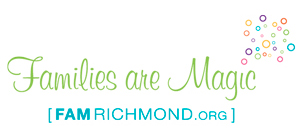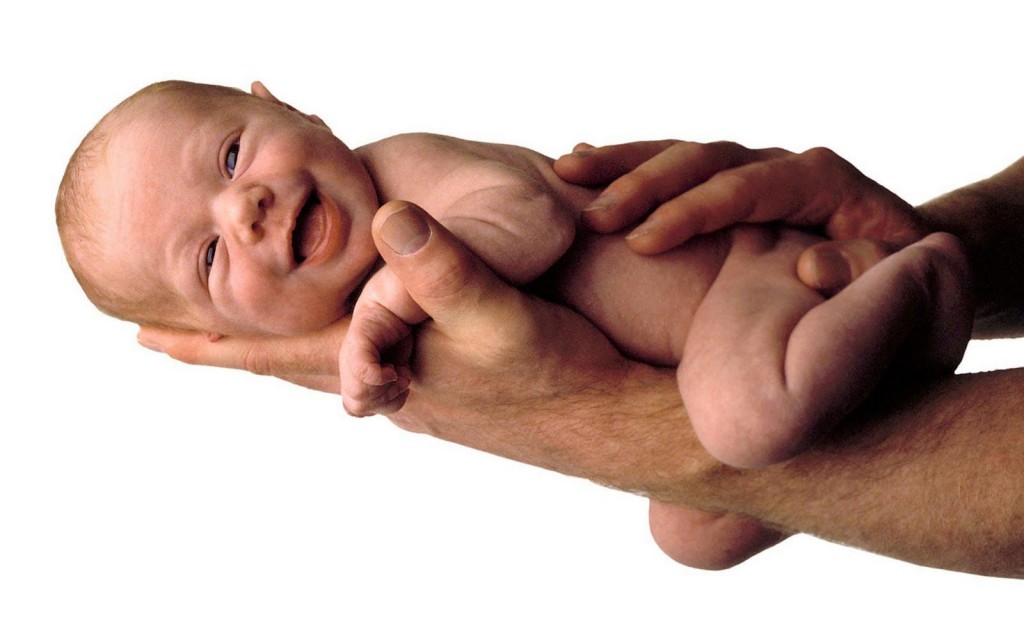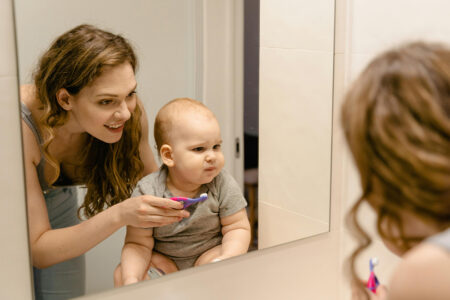Q: We’re expecting our second child in two months. Our firstborn is two-and-a-half and very excited at times, patting my tummy and talking to the baby. At other times, she seems very upset about the baby, becoming clingy and teary. How can we help everyone have a smooth transition once the baby is born?
A: Congratulations on your growing family. Thinking about the big addition to your family now will certainly make it much easier for all of you. If you observe your daughter during a typical day, her reactions to other things may also range from happiness to being upset. This is common. Toddlers are adjusting to their changing world and strong emotions are reactions that are very typical at this age.
A new baby is a transition for everyone and you want to help your little one be as successful as possible. It is important to help your child with a vocabulary of feelings at this time, as she is experiencing a range of emotions and will continue to do so once the baby arrives. Help her understand when she is feeling happy, sad, mad, tired, and scared. Identifying these feelings will help her be able to manage them more effectively in the future. At this age, your daughter needs you to help her manage her feelings, but these are the building blocks to her own emotional competence. Remember, there are no wrong feelings. We all have the right to feel anything. Our actions, however, do not have free range, so help your daughter understand the limits of her behaviors now and after the baby is born. For example, being super-excited is great, but she can’t hug the baby over and over again, or shake or squeeze the baby too tightly. Show her another way to be super-excited – perhaps giving the baby one hug and giving you ten high-fives.
Another suggestion to make this transition as smooth as possible is not attempting any big toddler milestones right now, such as potty training or a new childcare situation. If something has to change for your family, like childcare or moving your daughter into a new bedroom, get this new routine established as soon as possible so your daughter has time to adjust before the baby arrives.
It will also be beneficial for the family and important for your daughter to help her identify with her new role of big sister. Let her make some decisions about the baby, such as a favorite stuffed animal for the nursery, and ask her to help with the baby when appropriate. Toddlers love to be helpful, so she can get the baby’s shampoo or a blanket when you need them. Don’t expect your daughter to share everything with the new baby. It’s healthy for her to keep a few special toys and books that are hers and that she won’t be required to share. Play with these items during one-on-one time. Try and carve out time every day for just you and your daughter so she feels connected to you and not replaced by the baby.
To truly prepare, let her know the arrangements for when you are giving birth. If this is a new arrangement, conduct a trial run if possible to avoid surprises. Finally, talk to her about how things will change and how they will stay the same. Reassure your daughter that your heart is big enough to love two children. At times, your daughter may want to be like a baby too – this is common. She may not want to be the big sister all the time. Find a balance that works for everyone.
Patience, some planning, and lots of love are enough to help your daughter with this transition.








